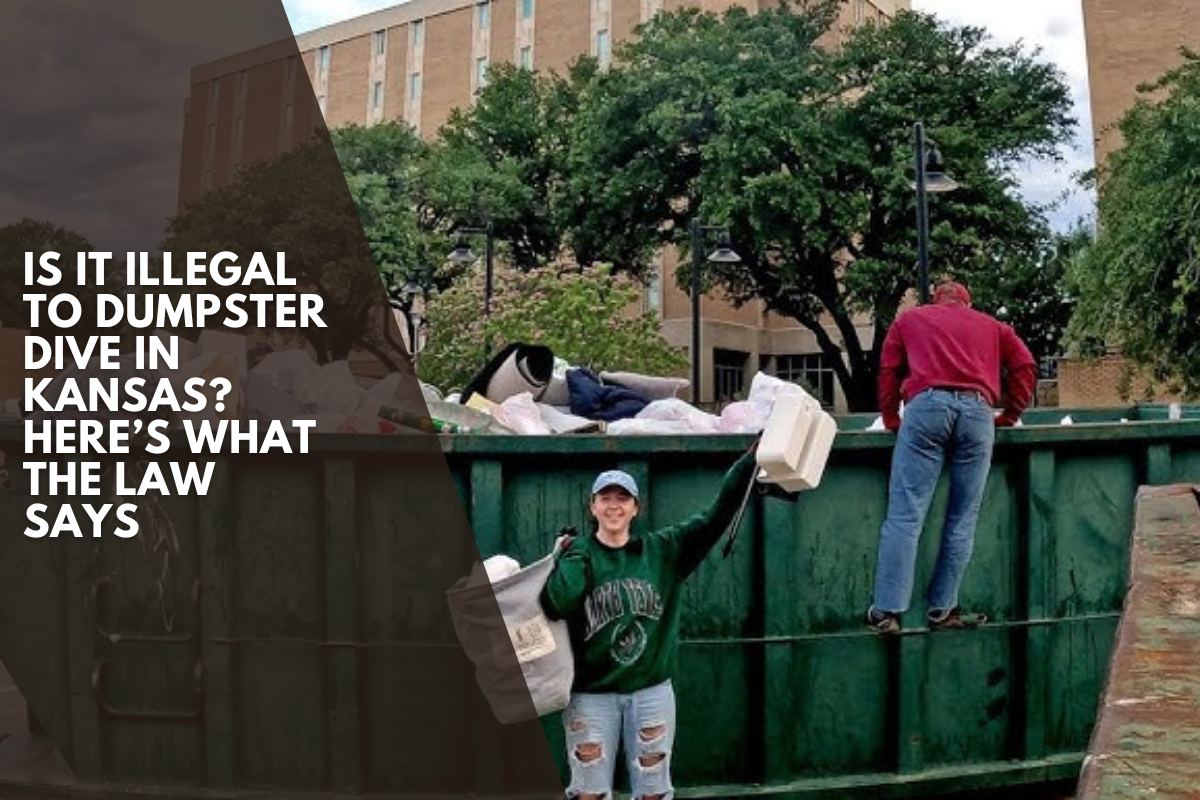Dumpster diving—the act of searching through dumpsters or trash bins for usable or valuable items—is a legally complex issue in Kansas. Here’s what the law says in 2025, and what you need to watch out for before sifting through someone else’s garbage.
Is Dumpster Diving Legal in Kansas?
Yes, dumpster diving is technically legal across Kansas, thanks to both federal and state precedent. The 1988 Supreme Court decision in California v. Greenwood established that items left out for trash collection are, in most cases, in the public domain and may be searched or collected. Kansas has no state law that specifically bans dumpster diving. As soon as something is placed for public collection—like on a street curb—it’s generally fair game.
Key Legal Considerations
However, just because it’s not broadly illegal doesn’t mean it’s always allowed everywhere in Kansas. Here are the key points:
Private Property: If a dumpster is located on private property (for example, behind a business or within a fenced area), entering that property to access the dumpster may constitute trespassing. Signs (“No Trespassing,” “No Dumpster Diving,” or surveillance warnings) add legal weight, and you could face citations or arrest for ignoring them.
Local Ordinances: Some Kansas cities have municipal rules banning or restricting dumpster diving entirely, regardless of state law. For example, in Winfield, Kansas, it is unlawful to scavenge solid waste from any container, hauling vehicle, or disposal site within city limits. Always check local city or county ordinances before engaging in dumpster diving.
Leaving a Mess or Creating a Disturbance: Even where dumpster diving isn’t specifically prohibited, you can be cited for littering or disorderly conduct if you leave trash outside the dumpster after searching through it. Business and property owners might involve law enforcement if they feel the activity is disruptive.
Dumpster Locks, Fences, and Signs: Dumpsters that are locked, fenced-in, or posted with “No Trespassing” or “Private Property” signs are legally protected. Entering or opening them is illegal, and you may face criminal trespass charges, regardless of your intentions.
Dumpster Diving for Recyclables: Some areas further restrict the collection of recyclables from public bins, considering it theft if you take items intended for city or company collection and resale.
Injury or Illness: Property owners often post “No Dumpster Diving” signs to limit liability in case you are injured while scavenging. Legal trouble can arise if you are injured and attempt to sue the dumpster owner or business.
Summing Up
Dumpster diving is not outright illegal in Kansas at the state level, but trespassing, breaking local ordinances, or ignoring posted signage is against the law. Best practices for staying within legal boundaries include:
Never enter private property, hop fences, or ignore warning signs.
Research city or municipal codes before diving (e.g., Winfield bans it outright).
Leave the area cleaner than you found it to avoid littering charges.
Stick to dumpsters in public areas without prohibitive signage or barriers.
Exercise caution, respect private property, and double-check local rules to stay on the right side of the law while searching for discarded treasures in Kansas.
Sources
[1] https://www.findlaw.com/injury/torts-and-personal-injuries/dumpster-diving.html
[2] https://worldpopulationreview.com/state-rankings/dumpster-diving-legal-states
[3] https://www.rolloffdumpsterdirect.com/dumpster-diving-illegal/
[4] https://www.reddit.com/r/DumpsterDiving/comments/159ul08/in_kansas_is_this_legal/
[5] http://winfield-ks.elaws.us/code/coor_ch78_artviii_div1_sec78-525











